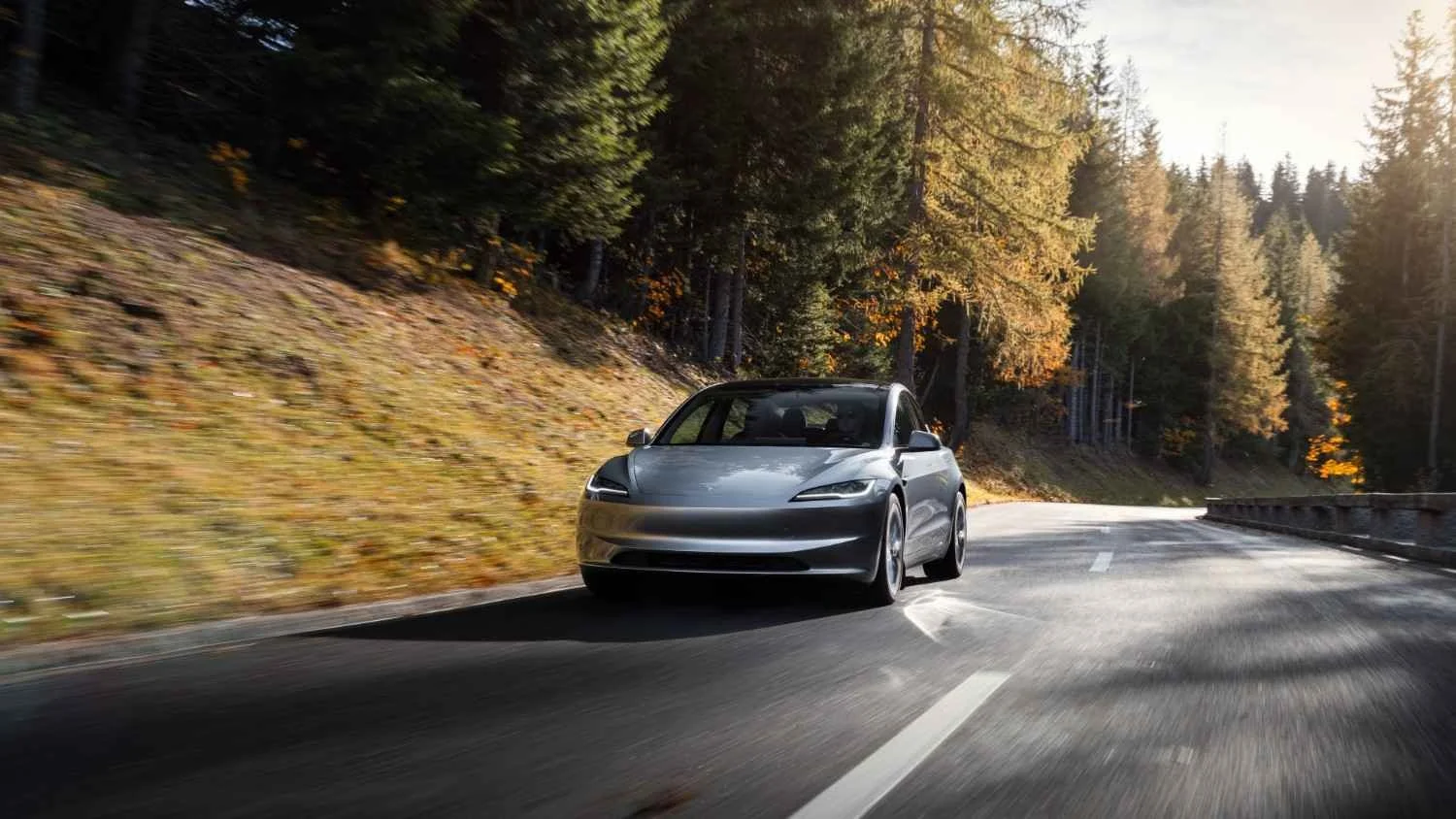Salary Sacrifice vs Business Leasing: Which Is Right For Your Business?
Source: Shutterstock
The appeal of environmentally conscious benefits is significant for UK businesses. Research shows that 70% of employees are more likely to work for a company that contributes to a greener planet, making an electric car scheme an attractive proposition for both employee retention and recruitment.
You might wonder if an electric car salary sacrifice scheme is the right solution for your company. In the UK, many business owners are interested in acquiring an EV but may be hesitant to introduce The Electric Car Scheme or similar company electric car scheme options to do so.
In this article, we will compare getting a car through salary sacrifice versus business leasing (business contract hire - BCH). We will focus on the costs involved, highlight key differences, and help you determine which option is the best fit for you and your company.
Salary Sacrifice & Business Contract Hire: What Are They?
Salary sacrifice is a benefit that allows employees to lease a new electric vehicle by giving up part of their pre-tax salary. This reduces their Income Tax and National Insurance contributions, potentially saving them up to 50% on the cost of the car. Employees will have to pay a small amount of Benefit-in-Kind tax (BiK) - in the case of electric cars, the current BiK rate is very low at 3% for 2025/26. At the same time, it helps businesses improve employee satisfaction and retention without any additional costs.
Business contract hire, sometimes known as BCH, is a leasing option that allows companies to rent vehicles for a fixed period, typically between two to five years, by paying a set monthly fee. This arrangement helps businesses manage their fleet costs without the need for large upfront payments. Maintenance and servicing can often be included in the contract, making it a hassle-free option. At the end of the term, the vehicle is returned, avoiding concerns about depreciation or selling the car. This flexible approach helps businesses keep their fleet up to date and manage cash flow efficiently.
Can a sole trader salary sacrifice an EV?
A sole trader cannot use EV salary sacrifice because they do not receive a salary through PAYE. Salary sacrifice schemes only apply to employees on payroll. Sole traders can still claim capital allowances on electric vehicles used for business, but this is a different tax benefit.
On the other hand, owners of small limited companies are eligible for salary sacrifice - as long as their salary is sufficient. Always consult an advisor if in doubt.
Leasing an Electric Car Through a Limited Company: Your Options
When considering leasing an electric car through a limited company, directors have two main pathways: electric car leasing with salary sacrifice or business contract hire. Unlike salary sacrifice as a sole trader (which isn't possible), limited company directors can benefit from both options.
If you choose to lease a car through limited company via business contract hire, the company holds the lease directly and can reclaim VAT on business use. However, electric car salary sacrifice often provides greater overall savings for individual employees, particularly those in higher tax brackets using The Electric Car Scheme.
Comparing Salary Sacrifice and BCH
The main difference between salary sacrifice is that salary sacrifice is tied to one employee’s lease whereas BCH is a flexible lease held by the employer. BCH gives businesses more freedom for company use and salary sacrifice focuses on saving the employee money through tax-savings.
Let’s have a closer look at the positives and negatives of both:
Salary Sacrifice: Positives And Negatives
| Positives | Negatives |
|---|---|
| Affordability: Employees have access to new vehicles without large upfront. costs or a personal credit check | Lack Of Ownership: Employees do not own the car, but in some cases they can purchase the car at the end of the lease. |
| Tax Savings: Employees can save on National Insurance and Income Tax, bringing the overall cost down significantly | Restricted Mileage: Employees have to choose an estimated mileage at the beginning of the lease term, meaning there is not as much flexibility as other options |
| Environmental Benefits: Offering an EV salary sacrifice scheme is a great initiative to get more people driving more sustainably | Employer Has To Be Signed Up: EV salary sacrifice schemes are only available if the employer is signed up to the scheme, which can be a limit to many who want to salary sacrifice an EV |
| Employee Attraction & Retention: EV salary sacrifice is a great way to boost employee retention and satisfaction by offering this as an employee benefit due to the savings made. | Charging Costs: Much like a petrol or diesel car, the employee will need to pay for charging costs of the car |
Business Contract Hire: Positives And Negatives
| Positives | Negatives |
|---|---|
| No Large Upfront Payments: Frees cash for other business needs | Mileage Limits: Contracts usually come with mileage restrictions and exceeding this can incur extra charges |
| Avoids Risk Of Depreciation: The leasing company handles the vehicle's resale, so there's no concern over depreciation | Long-Term Commitment: Ending the contract early can result in penalties |
| Maintenance Options: Contracts often include maintenance and servicing which reduces the hassle | Continuous Payments: Businesses are always paying for the vehicles without building equity |
| Fleet Flexibility: Businesses can regularly update their fleet with the latest models | No Ownership: The business doesn't own the vehicle, so there's no asset at the end of the contract |
As you can see in the tables above, the positives and negatives of both BCH and salary sacrifice are very similar with some small nuances.
So, What Are The Key Differences Between Salary Sacrifice And BCH?
We’ve covered the positives and negatives of both, but what are the key differences?
Cost: The cost of both is dependent on the lease term, annual mileage and any add-ons (such as a home charger if the employee is getting an EV). Generally speaking, salary sacrifice is cheaper but BCH is more flexible for the employer.
Use: Salary sacrifice is a non-cash benefit for employees to use on a personal basis. Business Contract Hire can be used for both business and personal.
Who Pays: The employee pays a portion of their gross salary with EV salary sacrifice, whereas with BCH, the business pays for the lease.
Tax Implications: The employee pays less Income Tax and National Insurance. BCH, the business can offset rental payments against the taxable income and reclaim VAT.
Salary Sacrifice vs BCH: Costs Compared
Below is a cost comparison between leasing a Kia Niro through a salary sacrifice scheme and via Business Contract Hire (BCH), based on the assumption that the individual leasing the vehicle is a 40% taxpayer.
| Cost Comparison | Salary Sacrifice | Business Contract Hire |
|---|---|---|
| Gross Monthly Salary Sacrifice | £600-£700 | NA |
| Monthly Tax & NI Savings | Up to 50% savings overall (40% on Income Tax & NI, plus 3% BiK rate) | NA |
| Employer NI Savings | Yes, 13.8% | NA |
| Net Monthly Cost | £400-£450 (after tax savings) | £500-£600 |
| Ownership | No (lease) | No (lease) |
| Maintenance | Typically includes | Optional, can be included for an additional fee |
| VAT Reclaim | No | Up to 100% for business-only vehicles |
| Flexibility | Employee-focussed, tied to their salary | Business-focussed, flexible for fleet management |
Which One is Right For You?
Here are 10 scenarios comparing salary sacrifice and Business Contract Hire (BCH), providing clarity on when one option may be more suitable than the other.
High Personal Tax Rate
Better option: salary sacrifice.
Employees in higher tax brackets can achieve significant tax savings through salary sacrifice, meaning they will save more money overall.High Corporation Tax Liability
Better option: BCH
Companies with substantial profits can benefit from tax deductions available.Environmentally Conscious Company Culture
Better option: salary sacrifice.
Salary sacrifice car schemes often incentivise the choice of electric or low-emission vehicles, which aligns with green initiatives.Short-term Business Needs
Better option: BCH
When a company needs vehicles for a limited period, BCH offers more flexibility without any long-term commitments.Employee Retention Strategy
Better option: salary sacrifice
Offering a salary sacrifice scheme is an attractive benefit to help retain and show employees they are valued within the company.High-mileage (Business Use)
Better option: BCH
For companies whose employees drive a high number of business miles, this option may offer better terms and maintenance packages.Diverse Workforce With Different Needs
Better option: salary sacrifice
This approach gives employees the choice of cars to suit their individual needs and wants.Streamlined Fleet Management
Better option: BCH
This option is a good way to manage vehicles, this option often comes with comprehensive fleet services too.Limited Capital Availability
Better option: salary sacrifice
This method doesn’t require an upfront cost from the business, making it suitable for companies who may be worried about their cash flow.Specialised Vehicles Needed
Better option: BCH
If a company needs a specific type of vehicle for its operations, BCH will offer more suitable choices and terms
Are you an employer?
BOOK A DEMOAre you an employee?
SEE AVAILABLE CARSIf you're interested in learning more about The Electric Car Scheme and how our electric car salary sacrifice solution could work for your company, visit electriccarscheme.com to explore the UK's leading company electric car scheme.




